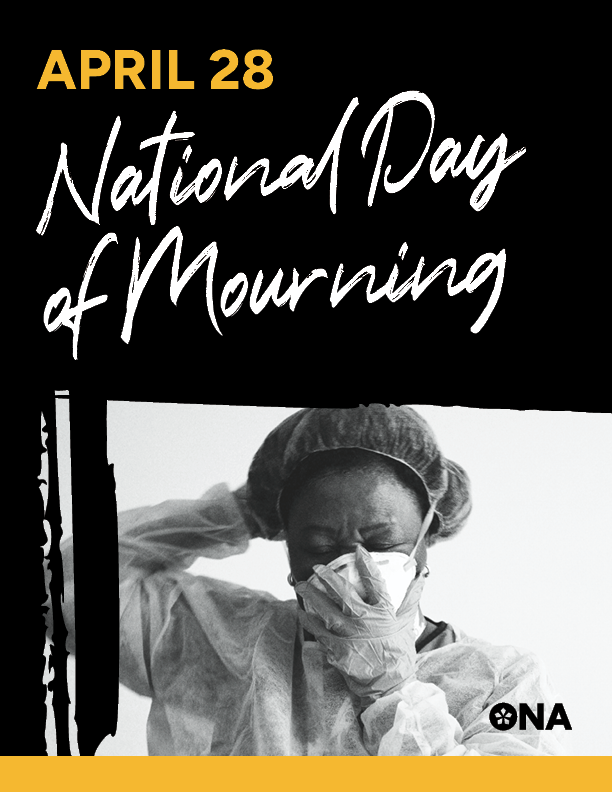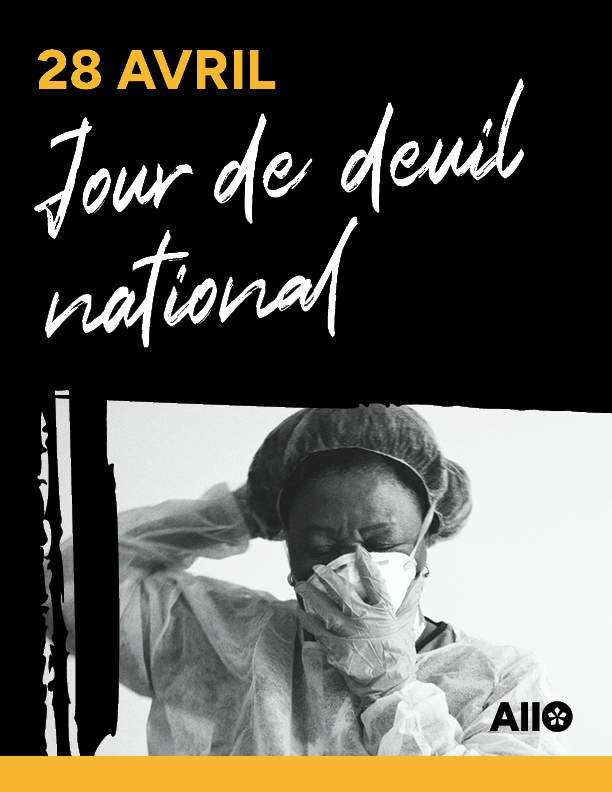April 28 is the National Day of Mourning
March 28, 2024
The National Day of Mourning is observed every year in Canada on April 28 to commemorate those who have been injured, made ill or killed while on the job due to workplace hazards or incidents. The observance began in 1984 and it was officially declared an annual day of remembrance the following year by the Canadian Labour Congress. In 1991, the day became a national observance, when the Workers’ Mourning Day Act was passed.
Every year on April 28, ONA members, staff and colleagues commemorate those who have been injured, made ill or killed at work. We honour ONA members, including Brian Beattie, who died due to COVID-19; a member who passed away in a work-related car accident; Nelia Laroza and Tecla Lin who died after contracting SARS; and Lori Dupont, who was murdered while working at a Windsor hospital. The list of members who have passed away due to work-related issues sadly continues to grow.
The Ontario Nurses' Association has been a leader in occupational health and safety issues that affect not only our members, but everyone in society. We will continue to advocate for members’ health and safety at the government, employer and Bargaining Unit levels.
Workplace injuries, deaths and illnesses are preventable.

Events
We encourage ONA members, staff and family and friends to join us and other labour leaders in marking the National Day of Mourning. Find events in your community:
Have photos you'd like to share with the ONA community? Submit them via email to digital@ona.org, or tag us on social media.
Materials
Learn More
If you need assistance with health and safety in your workplace, please contact your Bargaining Unit President.
- Ontario Nurses' Association - Health and Safety
- Ontario Nurses' Association - Workplace Safety & Insurance Board Help
- Sign up for ONA's Health and Safety eBulletin, "On the Safe Side"
- CFNU "In memoriam: Canada’s health workers who have died of COVID-19"
- Canadian Centre for Occupational Health and Safety
- Workers Health and Safety Centre
- Canadian Labour Congress - Workplace Health and Safety


